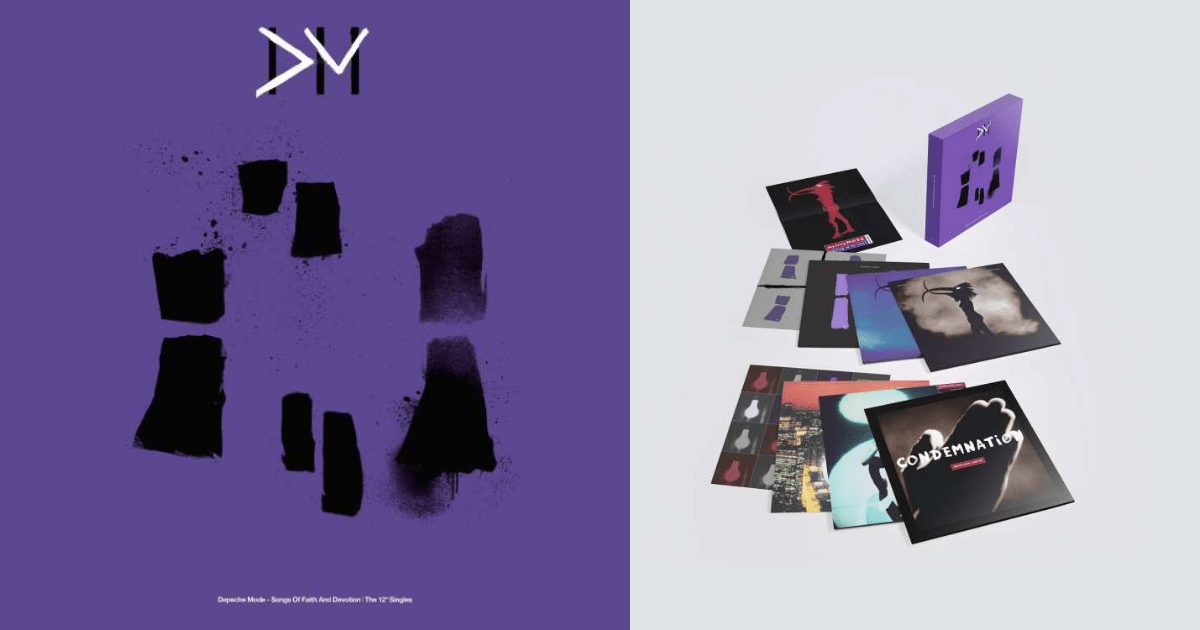

But his experiences as a pure singer from the band’s early days proved invaluable as he workshopped songs for “Imposter” back at his home in New York.

Gahan would, of course, eventually begin writing his own songs for Depeche Mode in the mid-‘90s. It was very important to Rich and I that we were going to track a song a day.” And we took over for just shy of four weeks. We had amp lines running everywhere, little amplifiers and guitars and Wurlitzers and Rhodes everywhere.

“Shangri-La was available for most of November, so we used the whole place. So Rick’s place came up for obvious reasons,” Gahan says. Spiritual, because the gold standard for the type of album Gahan wanted to make was Rubin’s “American Recordings” sessions with Johnny Cash, during which the Man in Black notably covered Depeche Mode’s “Personal Jesus.” And practical, because “we needed a studio that was large enough to record a live band, and was very versed in recording live music. The decision to record there made sense for reasons both practical and spiritual.
#WHO HAS COVERED DEPECHE MODE SONGS SKIN#
Even if it makes me feel like I’m crawling out of my skin at some points, and sometimes it does, there’s something about that that’s very important when you’re trying to find yourself as a singer.”Īfter several months of back-and-forth song discussions between Gahan and Machin, the two put together a 10-piece band, largely consisting of musicians they’d played with on previous Soulsavers tours, and decamped to Rick Rubin’s Shangri-La studio in Malibu. But also, “when I was approached to do it, it was like, ‘we’ll pick these songs for you, and put these great musicians together for you…’ But I have to have a relationship with the people in the room when I make music. “I didn’t have the confidence, for one,” he says. Gahan says he was initially approached to record a covers album nearly two decades ago, but turned it down. Like his previous records with the Soulsavers, the dominant musical coloring is provided by guitar, piano and gospel-style backing vocals, with Gahan’s voice given ample room to stretch. Howard - and manages to place Gahan’s voice in strikingly different contexts than his Depeche Mode heyday. The collection of songs is impressively eclectic - stretching all the way from old standards like “Smile” and “Lilac Wine,” to recognizable Neil Young and Bob Dylan tunes, to deeper cuts from the likes of PJ Harvey, Cat Power and the late Birthday Party guitarist Rowland S. It’s also, somewhat ironically, the first project that the outfit recorded live together in studio, with 2012’s “The Light the Dead See” and 2015’s “Angels & Ghosts” both produced remotely. “Imposter,” set for release tomorrow, is Gahan’s third full-length collaboration with the Soulsavers, led by multi-instrumentalist Rich Machin.
#WHO HAS COVERED DEPECHE MODE SONGS FULL#
But aside from a few one-offs, he’d never attempted a full album of covers until now. As the lead singer and frontman for seminal synth-rock outfit Depeche Mode, Gahan spent his first flush of fame as an interpreter of sorts, using his plaintive, sensual baritone to turn songs written by bandmate Martin Gore into deathless goth-pop anthems, inspiring acts as diverse as Nine Inch Nails, the Deftones and Coldplay.

Although for most of his career, those songs all came from the same source. Dave Gahan is no stranger to singing other people’s songs.


 0 kommentar(er)
0 kommentar(er)
